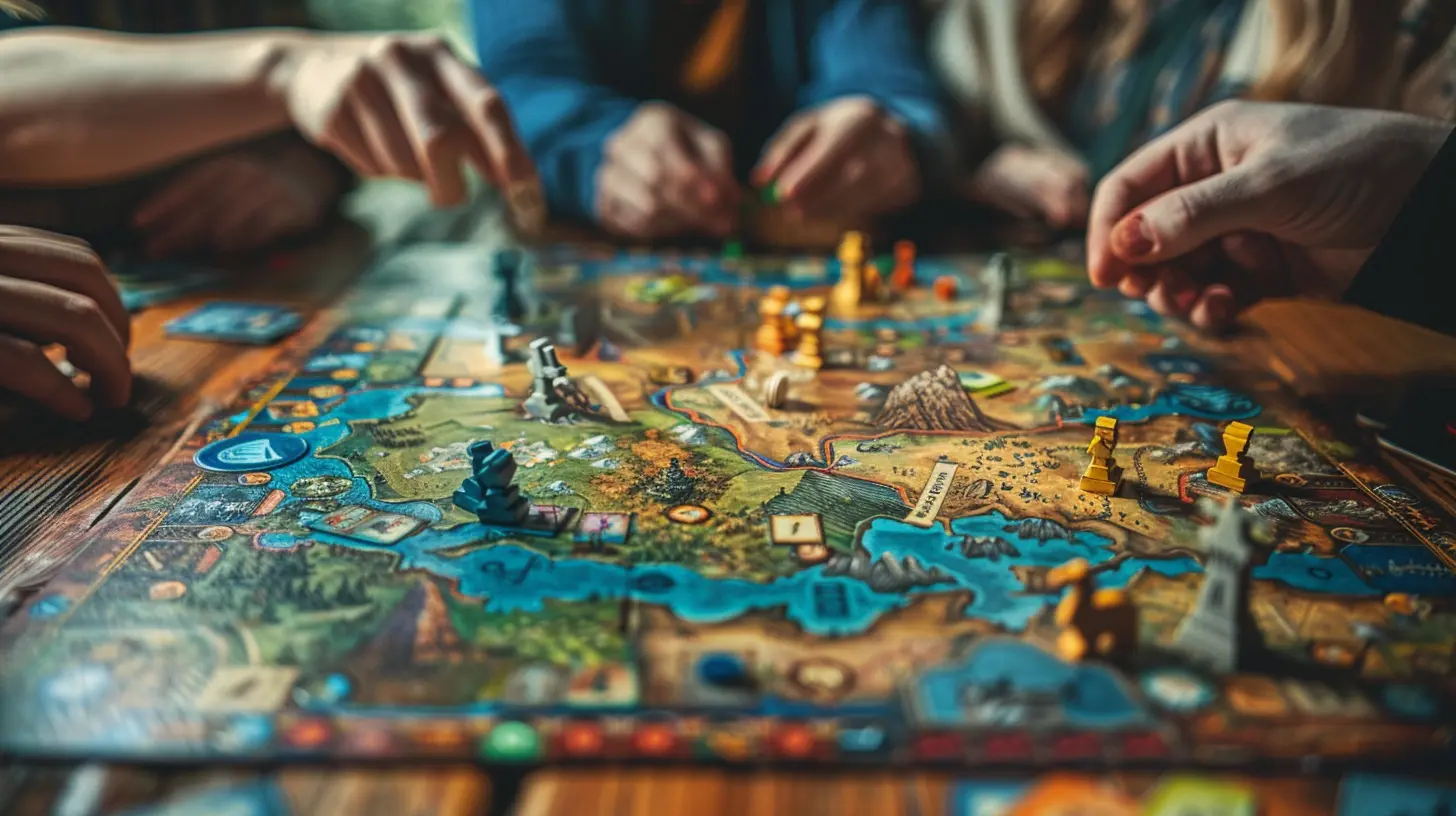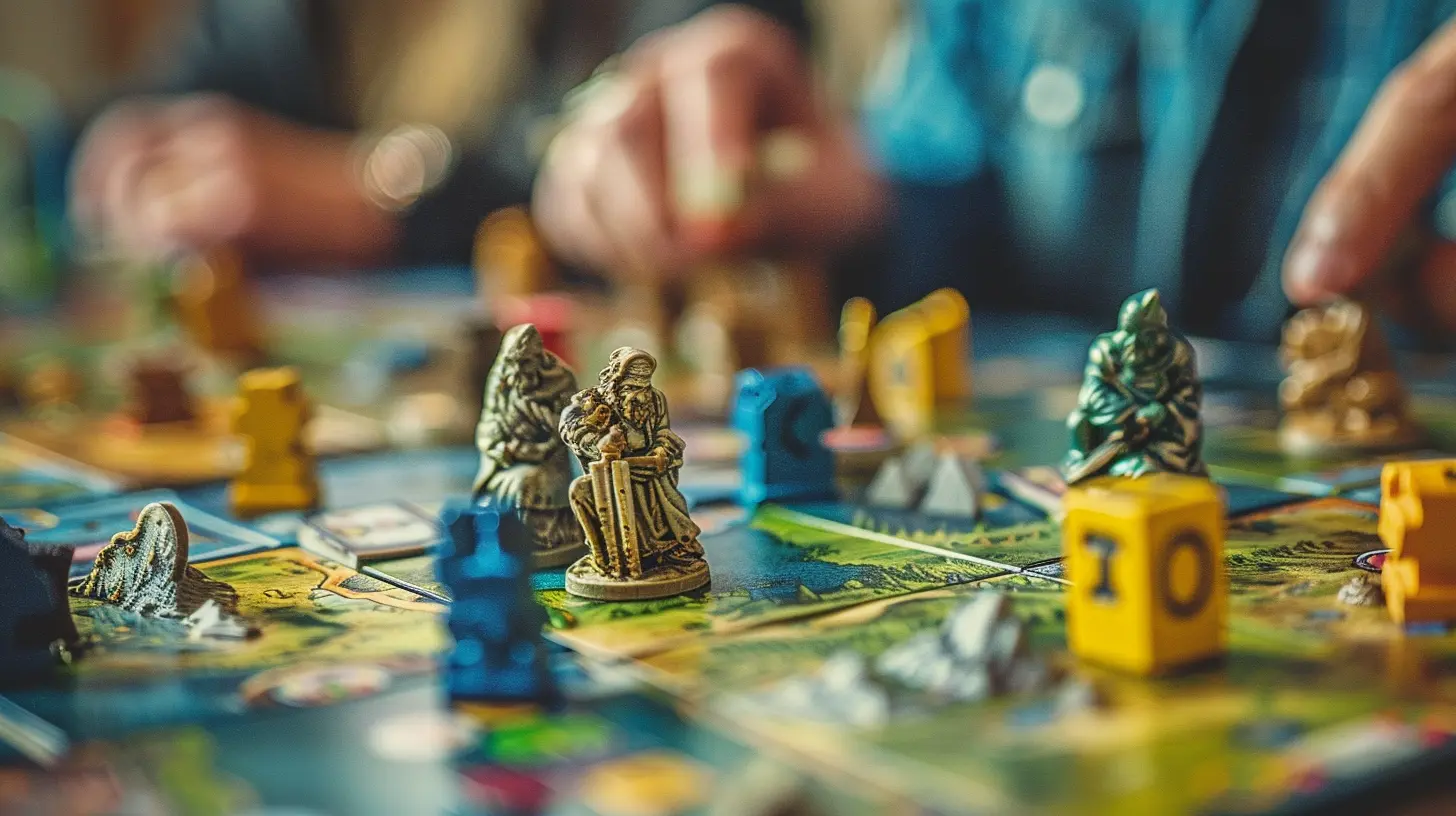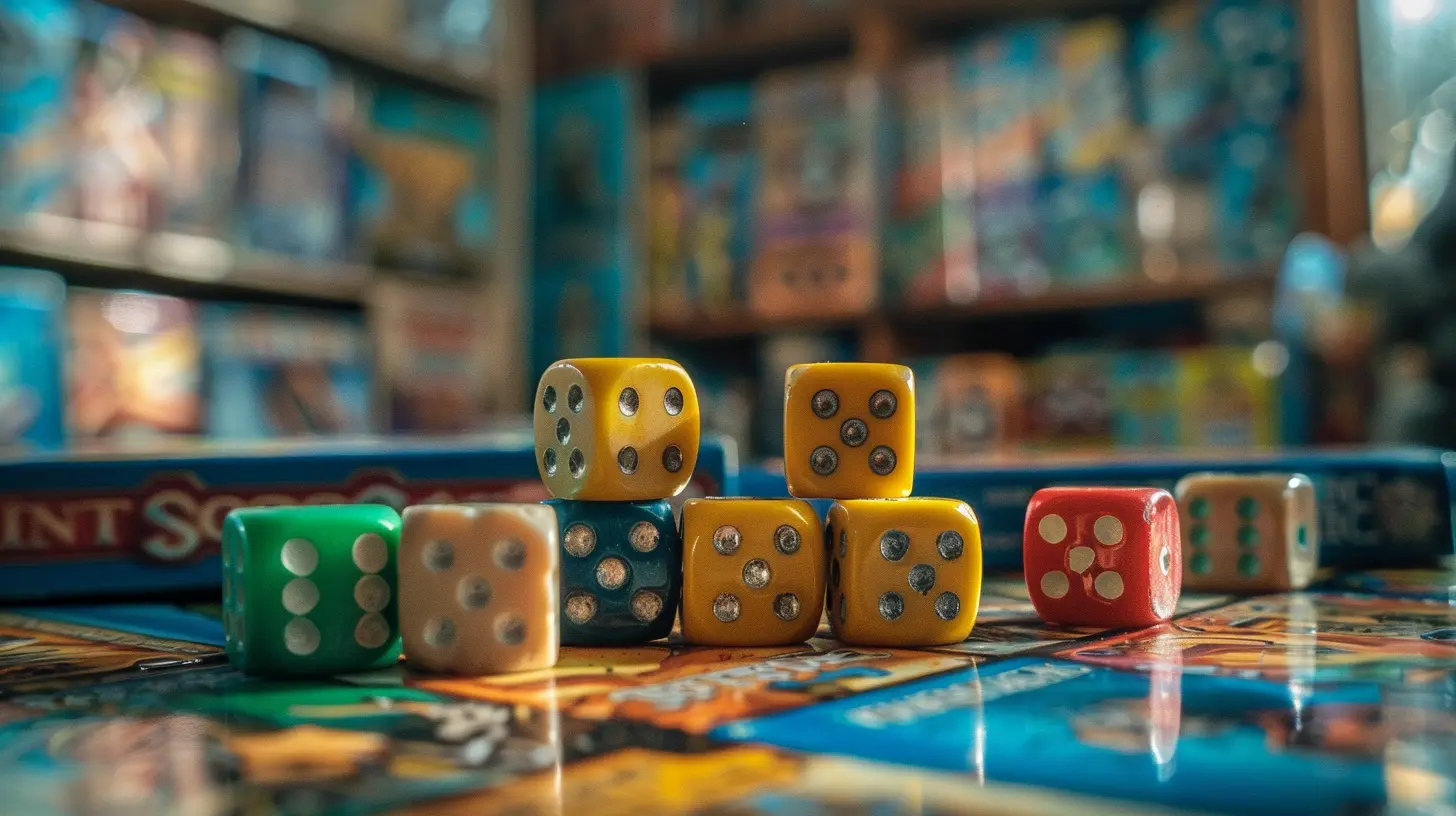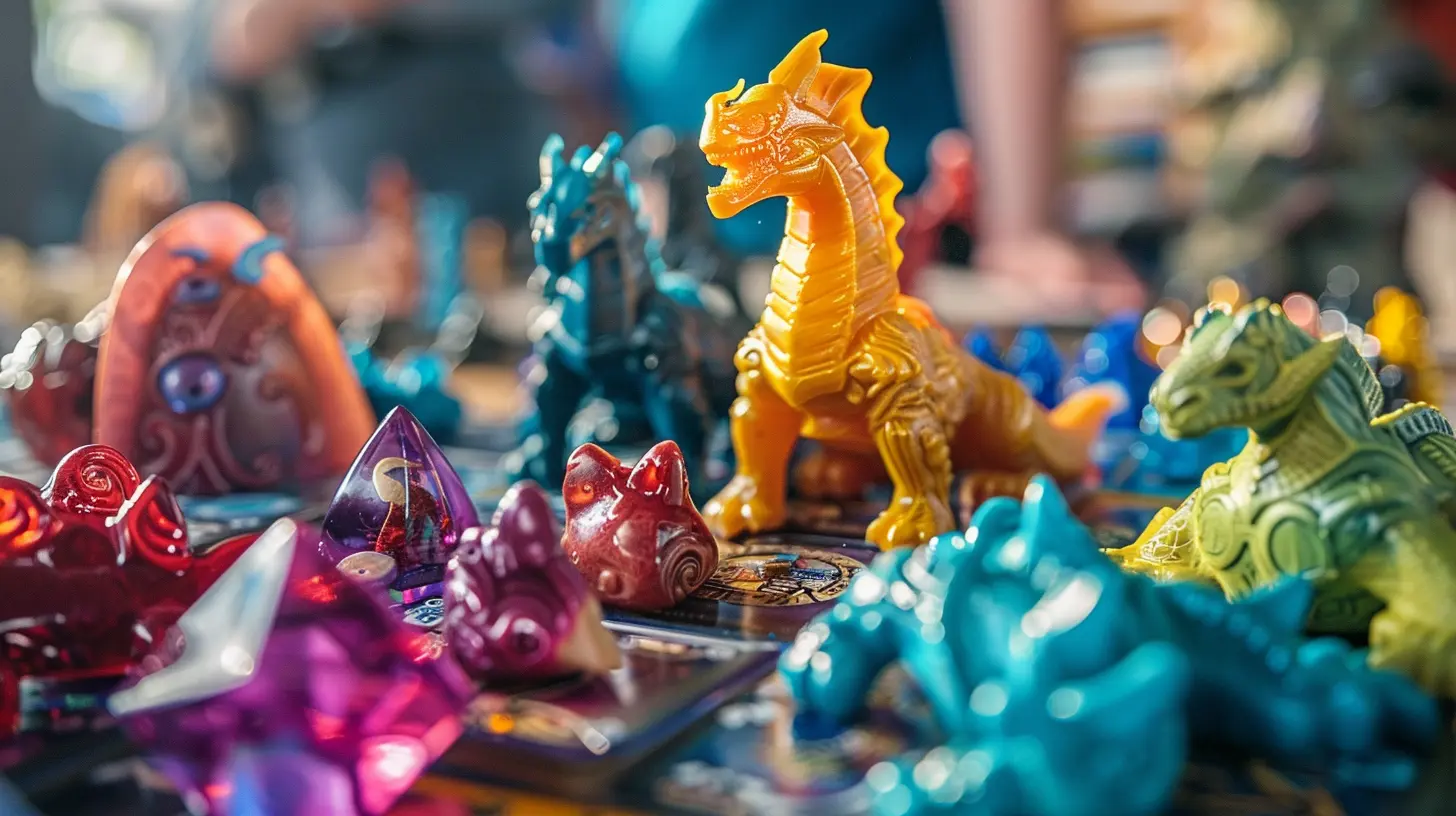Understanding Asymmetric Board Games: How Fair is Fun?
6 May 2025
If you've ventured into the ever-expanding world of board games recently, you've probably heard the term "asymmetric board games" being thrown around. It might sound like a fancy buzzword or something out of a mathematics textbook, but don’t worry—it’s far more entertaining than algebra. Asymmetric board games are taking tables by storm, offering unique experiences that shake up the idea of traditional gameplay. But here’s the burning question: How fair is fun when players aren’t on equal footing? Let’s dive into the world of asymmetric board games and find out why this unconventional approach is flipping the script on what makes games exciting and enjoyable.
What are Asymmetric Board Games?
First things first: What exactly is an asymmetric board game? At its core, an asymmetric board game is one where players start with fundamentally different abilities, objectives, or resources. In simpler terms, it’s like everyone is playing the same game, but each person has a different piece of the rulebook. Sounds wild, right?Think about it like this: In traditional games, you and I usually start on a level playing field. We get the same number of resources, access to identical mechanics, and often share a single win condition. It’s fair, but it’s also predictable. Asymmetric games, on the other hand, mix things up by giving players unique tools to succeed. One player might be controlling an army of warriors while another is a cunning diplomat striking secret deals. The catch? You’re often playing against each other.
What Makes Asymmetric Games So Appealing?
Let’s be honest—sometimes traditional board games can feel a little "been there, done that." Everyone starts equally, and the game becomes a test of who can best apply the same set of rules. Asymmetric games toss that idea out the window and say, "What if everybody had their own story to tell?"Here’s why that resonates with so many of us:
1. Replayability Goes Through the Roof
Ever get tired of playing the same game over and over because it feels like you’ve already mastered it? Asymmetric games are an antidote to that problem. Since every faction, character, or role offers a completely different playstyle, you can play one game a dozen times and still feel like there’s more to explore. It’s like watching a movie from every character’s perspective—each seat at the table tells a different story.2. Creative Challenges Keep Things Fresh
Let’s face it, solving puzzles is way more fun when those puzzles aren’t copy-pasted for every player. In an asymmetric game, the challenges you face depend on who you are and what your role is. Are you the scrappy underdog looking to outwit the juggernaut on the other side of the table? Or are you the all-powerful overlord trying to squash rebellion before it bubbles over? Each role brings its own set of challenges, requiring creative strategies and adaptability.3. It Feels Personal
Here’s the thing about asymmetric games: they make you feel like you’re part of something bigger, something specifically tailored to you. Your role matters. You’re not just a generic player trying to win; you’re the pirate captain, the intergalactic diplomat, or the forest-dwelling critter with a vendetta. That personal touch takes the investment to another level. When you win, it feels like your win because you played your way.
Is Asymmetry Fair?
Alright, let’s address the elephant in the room. Doesn’t giving everyone different tools and objectives automatically make the game… unfair? Great question. The answer is a bit nuanced. Technically, asymmetric games aren’t "fair" in the traditional sense, but here’s the kicker: they’re not supposed to be.Fairness in board games usually translates to balance, where every player has an equal shot at winning. Asymmetric games aim for something a little more dynamic—equity. The goal is to ensure that, even if players have different starting conditions, the game adjusts to give everyone a fighting chance.
Good asymmetric game design finds ways to balance the scales without flattening the experience. For example, the powerful faction might have a steeper learning curve, or the underdog might have sneaky mechanics that allow them to punch above their weight class. It’s not about making everything equal; it’s about making everything equally fun.
And let’s be real—life isn’t always fair. That’s part of what makes it exciting. Asymmetric games tap into that unpredictability. They’re a wild ride, full of moments where you either outsmart the odds or get hilariously crushed in the attempt.
Examples of Asymmetric Board Games That Got It Right
Let’s put some examples on the table (pun intended). These games are legends when it comes to asymmetric design, and they’ve managed to strike that delicate balance between chaos and fairness:1. Root
Root is often hailed as the gold standard of asymmetric board games. Set in a woodland world, players take on the roles of different factions—ranging from the domineering Marquis de Cat to the guerrilla-style Woodland Alliance. Each faction has its own win condition and playstyle. What makes Root shine is how brilliantly interconnected these factions are. You’re not just playing against the game; you’re playing against each other in a delicate dance of shifting alliances and backstabbing.2. Cosmic Encounter
This classic is a masterclass in asymmetry. Every player represents a different alien race with unique abilities that bend the game’s rules in completely bizarre ways. The beauty of Cosmic Encounter lies in its unpredictability. Just when you think you’ve got the upper hand, someone else pulls off a strategy you didn’t even see coming. It’s chaotic, but it’s the kind of chaos that makes you want to play again immediately.3. Pandemic: Fall of Rome
While the original Pandemic series is more cooperative than asymmetric, Fall of Rome leans into asymmetry by giving each player a distinct role with unique abilities to combat the spread of disease. You’re all working towards the same goal, but how you contribute depends on your specific strengths. It’s a wonderful hybrid of cooperative play and asymmetric design.The Challenges of Designing Asymmetric Games
Before we go handing out trophies, let’s take a moment to appreciate how tricky it is to design an asymmetric game. It’s not as simple as saying, "Okay, this person gets a laser cannon, and this person gets a slingshot. Have fun!"Here are some of the hurdles game designers face:
1. Balance is a Moving Target
Balancing an asymmetric game is like trying to juggle flaming swords while riding a unicycle. It’s not just about making sure one faction isn’t overpowered; it’s about ensuring that every combination of roles creates engaging gameplay. If one player’s experience suffers, the whole game can fall apart.2. Learning Curves Can Be Steep
With great diversity comes great complexity. Asymmetric games often require players to learn multiple playstyles, which can feel overwhelming. Designers have to strike a balance between depth and accessibility. No one wants to spend half the night reading a rulebook instead of playing.3. Player Interaction is Key
Asymmetric games thrive on player interaction. If everyone’s off doing their own thing with minimal overlap, it can feel more like parallel solo games than a shared experience. Designers need to create opportunities for players to clash, collaborate, and negotiate.Why Asymmetry is Here to Stay
At the end of the day, asymmetric board games offer something fresh and exciting in a world where cookie-cutter designs dominate. They challenge us to think differently, adapt quickly, and embrace the chaos. They may not always feel fair, but that’s what makes them fun. They remind us that the best games aren’t the ones we always win—they’re the ones we can’t stop talking about.So the next time you gather around the table, consider reaching for an asymmetric game. You might discover that fairness is overrated and that sometimes, the uneven playing field makes for the most unforgettable stories.
all images in this post were generated using AI tools
Category:
Tabletop GamesAuthor:

Stephanie Abbott
Discussion
rate this article
4 comments
Sable McGonagle
Asymmetry enhances strategy, but balance is crucial for enjoyable gameplay.
May 18, 2025 at 4:14 PM

Stephanie Abbott
Thank you for your insightful comment! You're absolutely right—while asymmetry can add depth and strategy, maintaining balance ensures that all players enjoy a fair and engaging experience.
Lisette Chapman
Asymmetric board games offer unique challenges that enhance gameplay. Embracing their imbalance sparks creativity and strategic depth, proving that fair doesn't always mean fun. Let's explore the excitement of disparities!
May 12, 2025 at 3:42 AM

Stephanie Abbott
Thank you for your insight! Embracing the unique challenges of asymmetric board games truly enhances the gaming experience, showcasing how imbalance can lead to creativity and deeper strategy. Let's continue to explore these exciting dynamics!
Owyn McIntosh
Asymmetric board games challenge traditional notions of balance and fairness, fostering unique strategies and player dynamics. This exploration reveals that fun often arises from embracing differences, encouraging creativity and adaptability rather than strict equality. Game on!
May 7, 2025 at 3:53 AM

Stephanie Abbott
Thank you for your insightful comment! I completely agree—embracing asymmetry in board games not only enhances creativity and strategy but also makes for a more engaging and enjoyable experience for all players. Game on!
Nell Fletcher
This article raises fascinating questions about balance and fun in asymmetric board games! The unique roles and strategies can lead to diverse gameplay, but how do players perceive fairness? I'm curious about personal experiences—does an unbalanced game enhance or detract from enjoyment? Looking forward to hearing thoughts from the community!
May 6, 2025 at 2:35 PM

Stephanie Abbott
Thank you for your insightful comment! Player perception of fairness in asymmetric games can vary widely; some enjoy the challenge of unbalance, while others may feel frustrated. Personal experiences greatly influence enjoyment—it's all about finding the right group and mindset!



